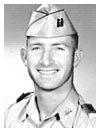The United State Senate unanimously approved legislation authored by Senator Kent Conrad designating June 27 as National PTSD Awareness Day. The news release quoted in its entirety below is from Political News:
QUOTE
The event is part of Senator Conrad’s continuing efforts tobring greater awareness to Post Traumatic Stress Disorder (“PTSD”), a severe anxiety disorder often associated with having experienced the trauma of combat.
For the third year in a row the Senate passed Senator Conrad’s resolution designating June 27 as National Post Traumatic Stress Disorder Awareness Day. The day is intended bring greater awareness about PTSD and help eliminate the stigma surrounding mental health issues.”National PTSD Awareness Dayshould serve as an opportunity for all of us to listen and learn about post-traumatic stress and let all our troops — past and present — know it’s okay to come forward and ask for help,” Senator Conrad said.
The Senator is encouraging individuals and veterans’ organizations across the country to use June 27 as a day devoted to promoting greater awareness of PTSD as well as its treatment and research.
Senator Conrad developed the idea for a National PTSD Awareness Day in 2010 after learning of the efforts of North Dakota National Guardsmen to draw attention to post-traumatic stress by paying tribute to their fallen friend, Staff Sgt. Joe Biel, who served in the 164th Engineer Combat Battalion. Biel suffered from PTSD and took his life in April 2007 after returning to North Dakota following his second tour in Iraq.The date for National PTSD Awareness Day — June 27 — was inspired by the birthday of Staff Sgt Biel.
The Department of Defense has stated that more than 90,000 service members have been clinically diagnosed with PTSD since 2001 and the Veterans Administration (VA) has treated more than 217,000 veterans from Afghanistan and Iraq for PTSD. And many cases of PTSD remain unreported.
To learn more about post-traumatic stress and locate facilities offering assistance, visit the U.S. Department of Veterans Affairs’ National Center for PTSD .
UNQUOTE
SFTT applauds Senator Conrad and his colleagues in the Senate for taking the initiative of increasing public awareness of the problems faced my many brave young men and women who suffer from PTSD. Nevertheless, there is increasing evidence that the V.A. simply lacks the resources or resolve to deal with the complexities of helping our warriors deal with PTSD. Medication alone is not enough and thousands of brave young men are simply not getting regular and effective treatment.
SFTT is convinced that more effective and sustainable treatment and rehabilitation is likely in community-supported initiatives. For this reason SFTT has established a medical task force to determine “best practices” in treating warriors suffering from PTSD. The hope is that effective programs can be replicated in other communities in the United States to help there veterans reintegrate themselves into society and reclaim control over their lives.


 Stand For The Troops (“SFTT”) is a 501(c)(3) non-profit Educational Foundation established by the late Col. David H. Hackworth and his wife Eilhys England to insure that our frontline troops have the best available leadership, equipment and training.
Stand For The Troops (“SFTT”) is a 501(c)(3) non-profit Educational Foundation established by the late Col. David H. Hackworth and his wife Eilhys England to insure that our frontline troops have the best available leadership, equipment and training. Includes rare footage from Hack's memorial service at Fort Myers Chapel and burial in Arlington National Cemetery.
Includes rare footage from Hack's memorial service at Fort Myers Chapel and burial in Arlington National Cemetery.